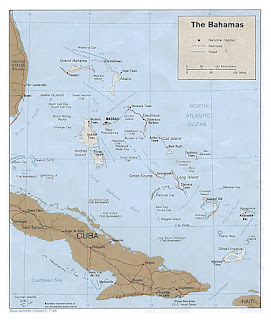Let's recommit now to sustainably manage our world's ocean’s precious resources
Critical action is needed now to restore and protect the earth's oceans!
A powerful video was shown echoing the theme, awaken new depths, warning of immediate protection needs and cautioning that there is no time for an “out of sight out of mind” sense of complacency.
In a statement marking the Day – which falls officially on Saturday - UN Secretary-General António Guterres said the ocean sustains life on Earth and the problems are essentially man-made.
“Climate change is triggering rising seas and threatening the very existence of small island developing states and coastal populations”, he said.
Mr. Guterres also mentioned that ocean acidification is destroying coral reefs, with sea temperatures reaching record levels leading to extreme weather events. Overfishing and other factors are contributing to the destruction of the world’s marine ecosystems.
The President of the General Assembly, Dennis Francis, attended the event and voiced similar concerns about the current state of the ocean.
“There is so much still to learn about oceans – and, importantly, to reverse the damage being caused to our precious lifeline resource.”
Mr. Francis said that the ocean is our strongest ally against climate change and therefore “it is our joint responsibility to course correct – and recommit to sustainably manage the ocean’s precious resources - so as to ensure their availability intergenerationally.”
The Secretary-General and General Assembly President said they are expecting reflections on and actions toward ways to restore and protect our oceans as the Summit of the Future in September 2024 and next year’s UN Oceans Conference approach.
State of the Ocean Report
The UN Educational, Scientific and Cultural Organization (UNESCO) released a State of the Ocean report earlier in the week pushing policymakers to think about “the ocean we need for the future we want.”
The report detailed threats to the ocean and trends that could help identify drivers of change.
It warned that the rate of ocean warming has doubled in 20 years and that coastal species are suffocating due to decreased oxygen levels in the ocean, among other things.
One of its conclusions is that “ocean literacy practice and research is a strategic ally to optimize resources, accelerate behavioural change and improve the implementation of ocean conservation programmes and sustainability practices.”
Calls to action
Speakers at UN Headquarters on Friday included marine biologist and oceanographer Sylvia Earle, who said finding ways to share the importance of protecting our ocean with the world can lead to vital action to also preserve coastal wildlife.
“Now is the time for governments, businesses, investors, scientists and communities to come together in defence of our ocean,” UN Secretary-General Guterres said.
In a similar call to action, General Assembly President Francis said we should “redouble our efforts to support and advance ocean action, build much-needed capacity in [small island developing states] and other developing countries – and promote innovative financing solutions that drive transformation and scale up resilience.”

.jpg)






